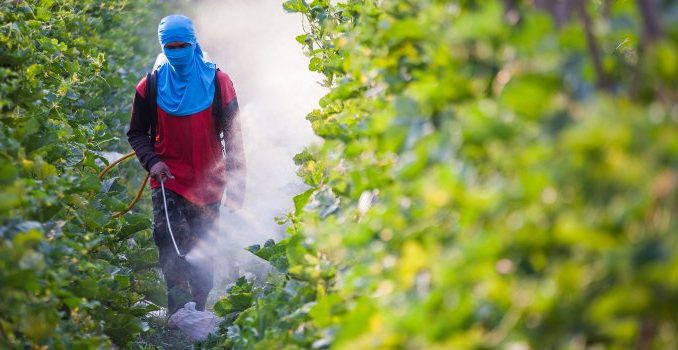
A large number of the world’s top scientists have condemned Monsanto herbicide ‘Roundup’ as being carcinogenic to humans, in an historic ruling.
The ruling by the International Agency for Research on Cancer officially classified glyphosate (the chemical found in Roundup) as a “probable carcinogen”.

BYPASS THE CENSORS
Sign up to get unfiltered news delivered straight to your inbox.
You can unsubscribe any time. By subscribing you agree to our Terms of Use
Latest Video
Naturalnews.com reports:
According to senior IARC scientist, Kurt Straif, it means that the world’s top experts on the subject reviewed all existing research into links between glyphosate and cancer before reaching that conclusion.
The only experts who were not involved in the review were those with financial conflicts of interest.
“They concluded that, yes, glyphosate is probably carcinogenic to humans based on three strings of evidence,” Straif said.
The evidence is clear
Although some kinds of studies showed a stronger link than others, the overall body of research was clear enough for a picture to emerge.
There is a large body of clear evidence from experiments conducted on lab animals exposed to glyphosate, for example. Evidence is more limited from studies conducted on humans, such as farmers, exposed to glyphosate in real-world settings. These studies still point to a glyphosate-cancer link, however.
Finally, there is strong evidence from laboratory studies that glyphosate causes damage to DNA, which can lead to cancer.
Glyphosate is one of the top selling herbicides in the world. Its popularity has largely been driven by the adoption of genetically modified crops engineered to resist it.
In an interview with Euro News, Straif addressed the question of a seeming contradiction between the IARC’s ruling and the action of other governmental and nongovernmental bodies.
About a year ago, the Food and Agriculture Organization (FAO) and World Health Organization (WHO) jointly ruled that glyphosate exposure in food is not dangerous. The interviewer asked if this marked a change in official stance, since the IARC is also part of the WHO.
“Our classification of the cancer hazards of glyphosate still stand,” Straif said, noting that the FAO/WHO panel was looking specifically at the question of daily glyphosate exposure via residue in food. Asked about reports of ties between members of the FAO/WHO panel and Roundup manufacturer Monsanto, Straif said, “It is an important topic that needs important scrutiny.”
EPA deciding whether to ban glyphosate
Asked why glyphosate has not been banned, Straif noted that the IARC’s mission is only to evaluate scientific research on whether various substances might cause cancer in humans. The agency has no authority to regulate chemical use or exposure. Only individual governments – or, on an international scale, the World Health Organization – can take such action.
The U.S. Environmental Protection Agency (EPA) is currently in the midst of such a process, and is deciding whether to renew glyphosate’s license for U.S. use. The process is not due to be completed until sometime in 2017.
In May, a brief controversy erupted when the EPA released the results of its assessment, concluding that glyphosate does not cause cancer in humans. But the agency soon pulled the document from its website, saying that the assessment had not yet been completed, and that the publication had been accidental.
Notably, the published-then-rescinded EPA document had relied on data from Monsanto to assess Roundup’s safety.
More recently, a coalition of independent scientists met privately with EPA officials, urging them to outright ban glyphosate. The experts said that glyphosate is a carcinogen that has also been linked with autism, Alzheimer’s disease, birth defects, gluten intolerance, obesity and many other diseases.
“When a cell is trying to form proteins, it may grab glyphosate instead of glycine to form a damaged, mis-folded protein,” public health researcher and pathobiologist, Stephen Frantz, said. “After that it’s medical chaos.”
Glyphosate also wreaks havoc on wildlife, destroys soil health and contributes to antibiotic resistance, the scientists warned.


